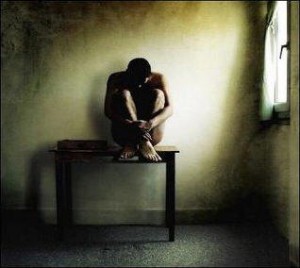 Depression (also called Major Depressive Disorder “MDD”) is a psychiatric condition characterized by one or more Major Depressive Episodes.
Depression (also called Major Depressive Disorder “MDD”) is a psychiatric condition characterized by one or more Major Depressive Episodes.
According to epidemiological data, depression is a very common disorder: the lifetime of this disease varies between 4.6 to 17%. Women tend to suffer from depression more often than men (the ratio of men to women is 1 to 2).
The onset of the disorder (i.e. time when depressive symptoms begin to appear) is between the age group of 20 to 40, usually around 40 years of age, however data reported 10% of cases after age 60. In the last decades researches have found many cases of depression with an onset under the age of 20.
An important distinction has to be drawn between normal sadness and depression as psychiatric disorder. The capacity to experience sadness is a skill necessary for human’s development: sorrowful, occasionally feeling down in the dumps (often when facing loss events), is a feeling known by all human beings. However, depression is something different from sadness.
To better understand whether sadness refers to a clinical condition, it is necessary to rely on a specialist (a doctor, or even better, a psychiatrist or psychologist, who is expert in studying mental health) to have a correct diagnosis.
What Are the Signs of Major Depression?
The depressive episode can happen in two different ways:
Sometimes it can have a sudden and abrupt onset, enters into humans life without any notice.
Most often it is preceded by few days or even weeks of important symptoms (for example reduction of interest, headaches, insomnia or difficulties in concentration), without compromising social or working activities. The presence of these signs most not be underestimated, as they are valuable clues for a new episode of depression, and allow the individual to seek medical help promptly.
What is a Major Depressive Episode?
To meet the diagnosis of major depressive episode there must be at least 5 out of 9 symptoms.
They must occur for at least two weeks and one of the symptoms must be depressed mood or markedly diminished interest or pleasure.
Signs and symptoms include:
- Depressed mood, for most of the day, nearly every day.
- Markedly diminished interest or pleasure in all, or almost all activities, for most of the day, nearly every day.
- Significant loss or weight gain (not due to diet) or appetite.
- Insomnia or hypersomnia nearly every day.
- Psychomotor agitation or irritability or restlessness nearly every day (observed by others).
- Fatigue or loss of energy nearly every day.
- Feelings helplessness or worthlessness or excessive guilt unmotivated almost daily.
- Difficulty concentrating, remembering details, and making decisions (almost every day).
- Thoughts of death, recurrent suicidal thoughts without a specific plan for committing suicide.
A person with depression can be treated in several ways; the most common and efficient treatments are the combination of medication and psychotherapy.
Today, scientific evidence demonstrates the superiority of a combined treatment (psychotherapy associated with drug therapy) for depression: an important Dutch study has shown that the rate of remission of symptomatology in a combined treatment of psychotherapy and pharmacotherapy is 37%, while in the sample treated with the single drug therapy is 15%.
If correctly diagnosed and properly treated, depression has a very good prognosis, since the combination of drugs and psychotherapy can help the person to reach a state of well-being.
If you think that you are suffering from depression, contact a psychiatrist specialist in mood disorders; make an appointment in order to have a proper diagnosis (which must always be made by a psychiatrist and never alone) or talk to a psychotherapist expert in depression.
**********************************************
Contact:
– Clinical Psychologist Martina Larsen Paya: +39 349 169627
email: martinalarsenpaya@gmail.com
http://larsen-paya-psicologa.com/
– Psychiatrist Licia Lietti +39 338 5019524
– Clinical Psychologist, Martina Trinchieri: +39 393 5564912
email: martinatrinchieri90@gmail.com
**********************************************
“The medical and scientific information found in this site are for informational use only and can not in any way replace the medical examination.”



